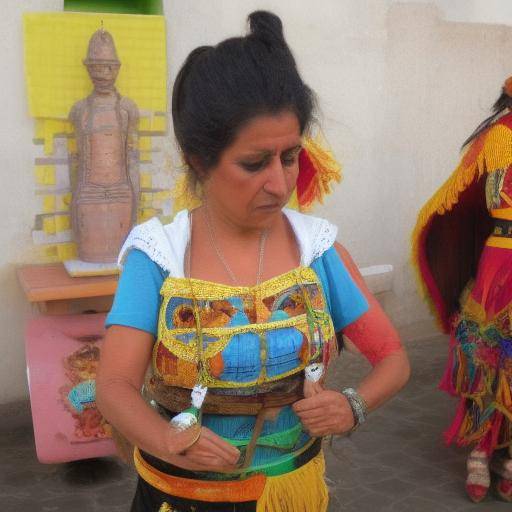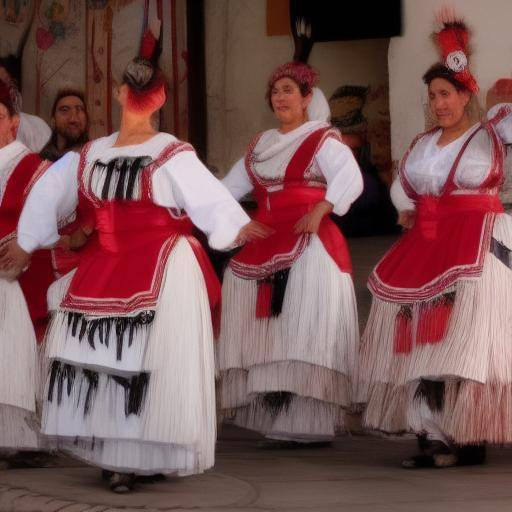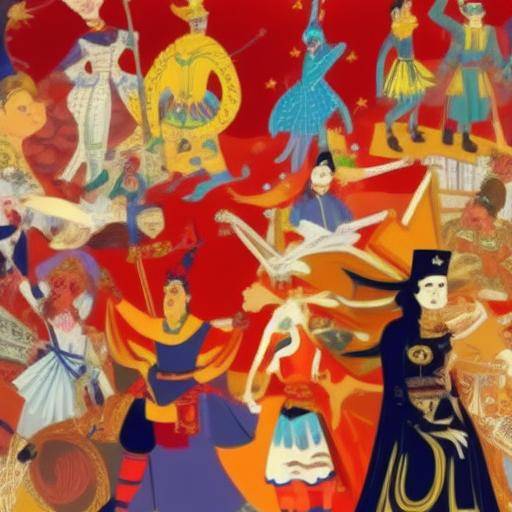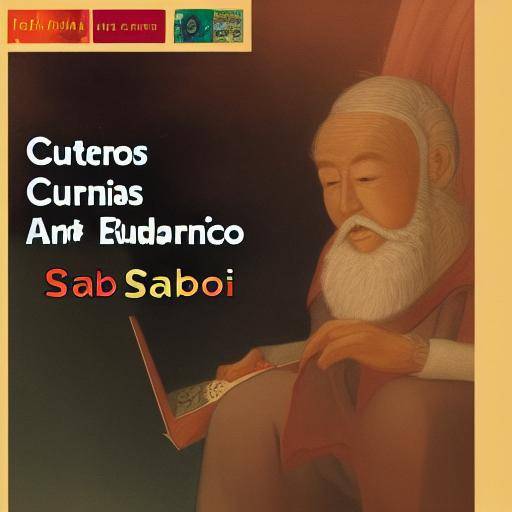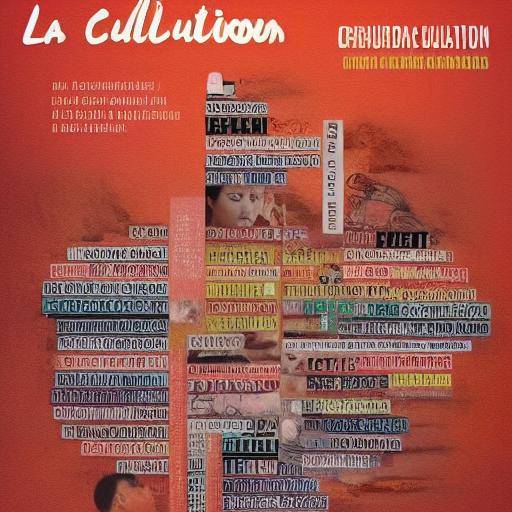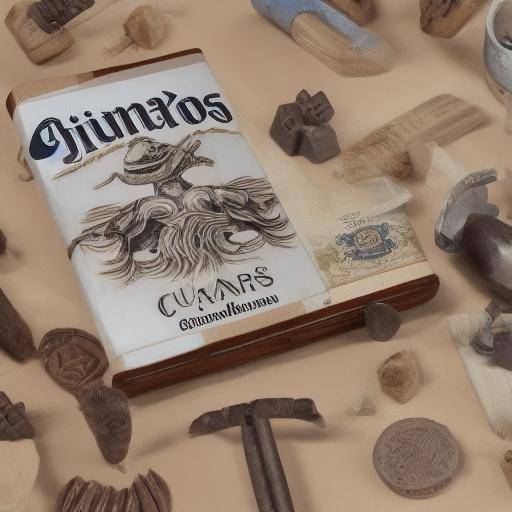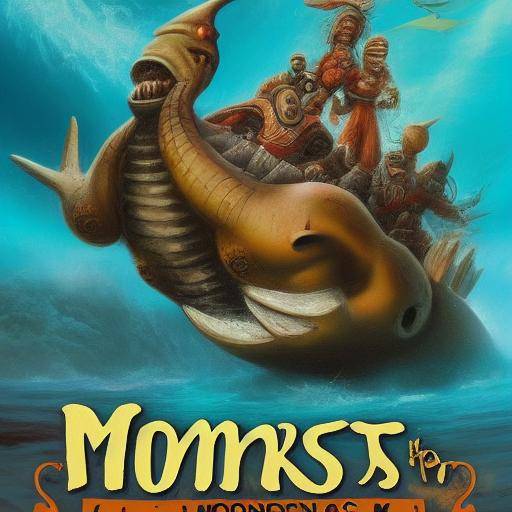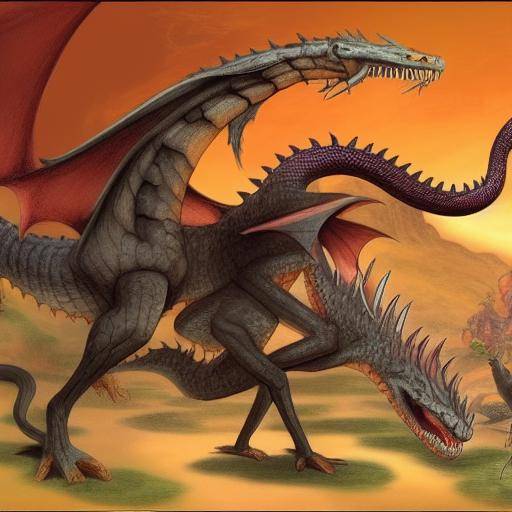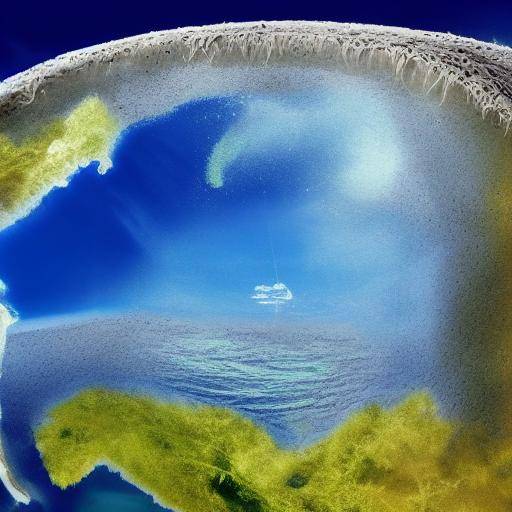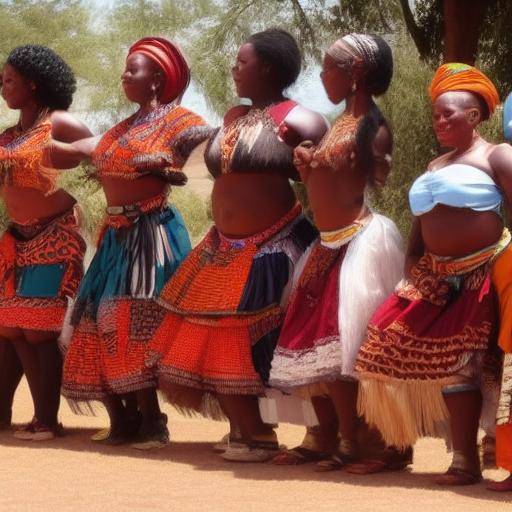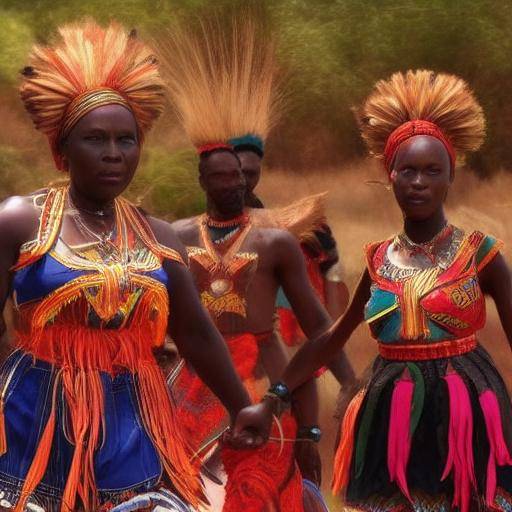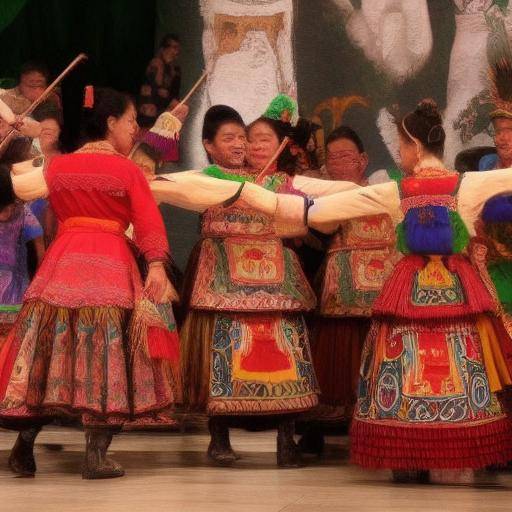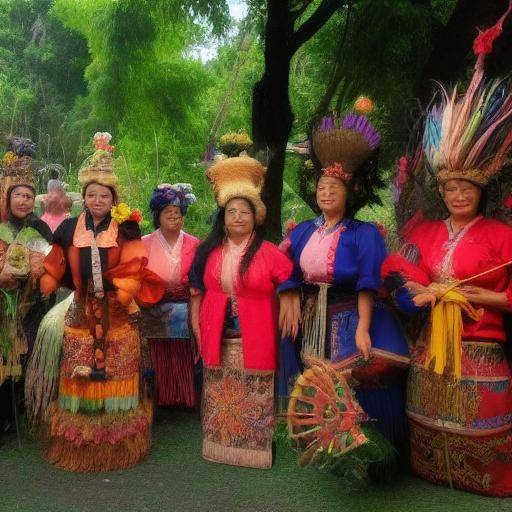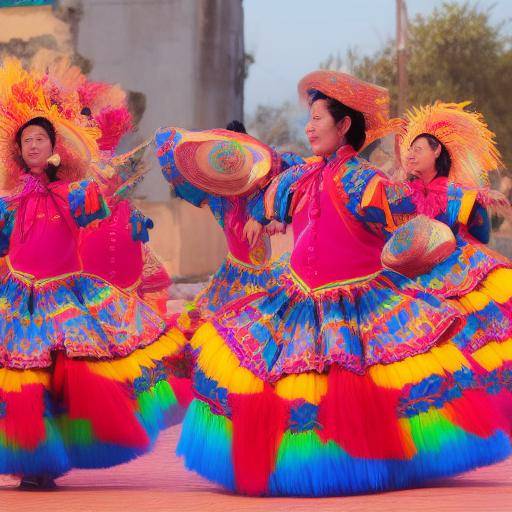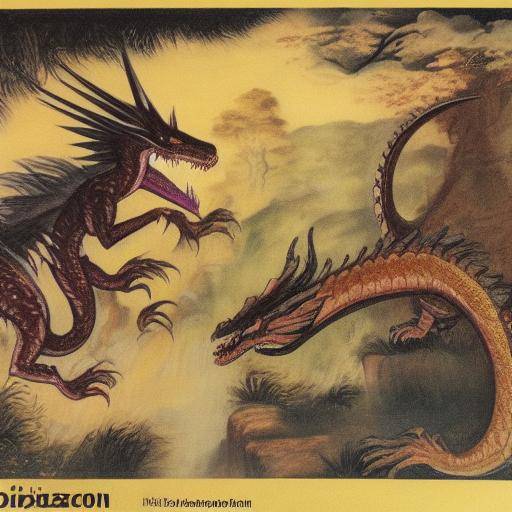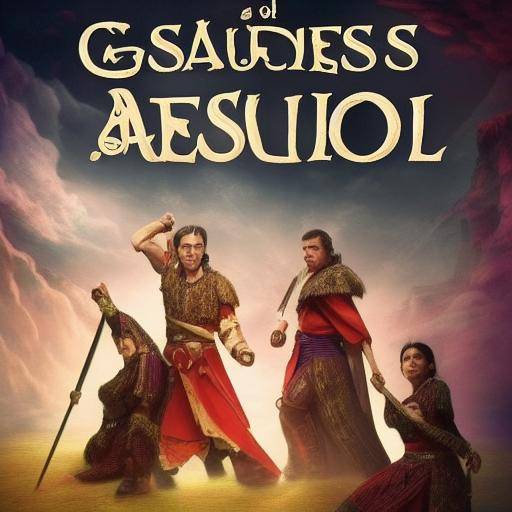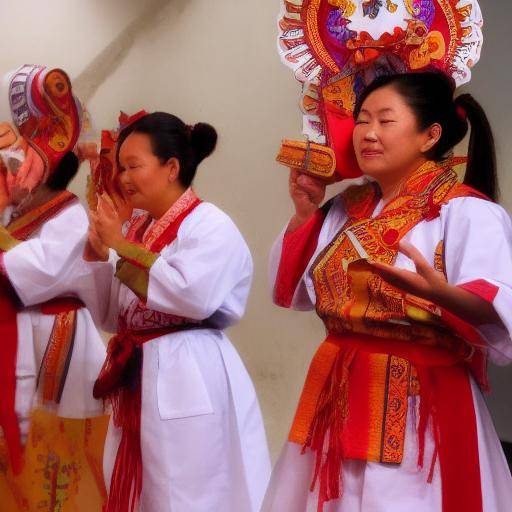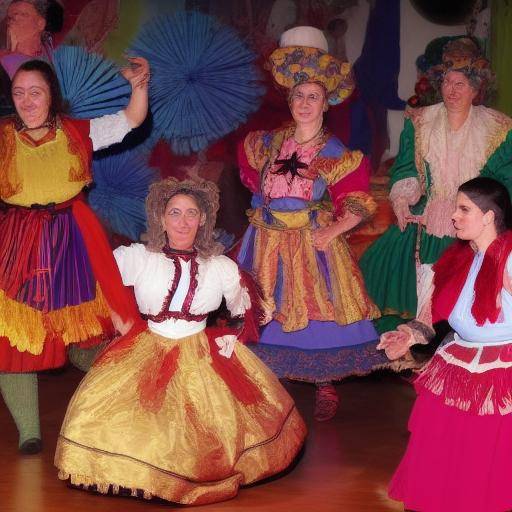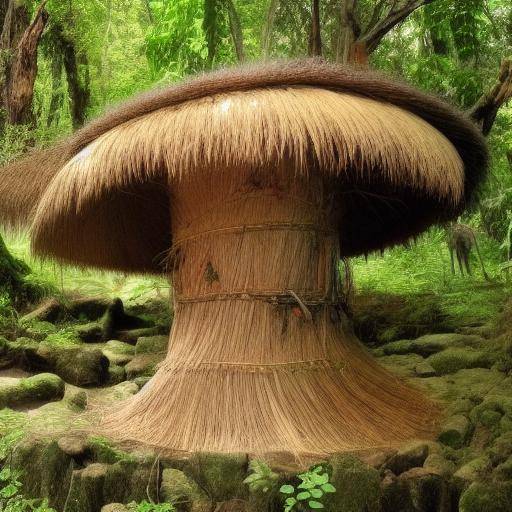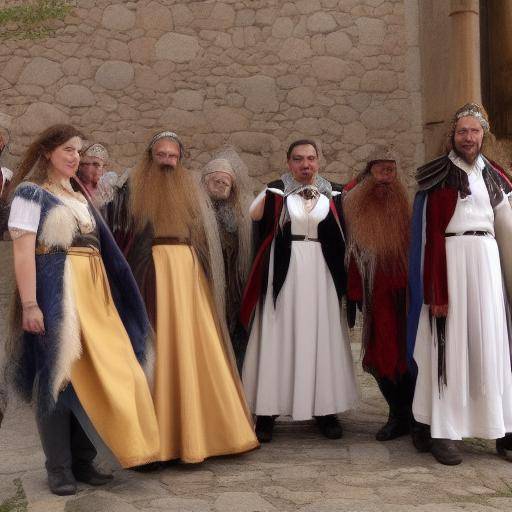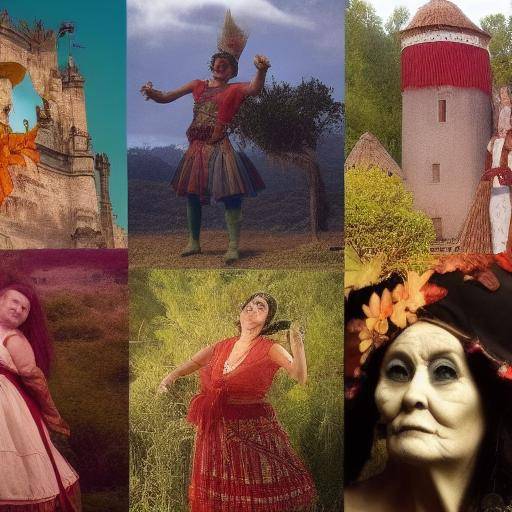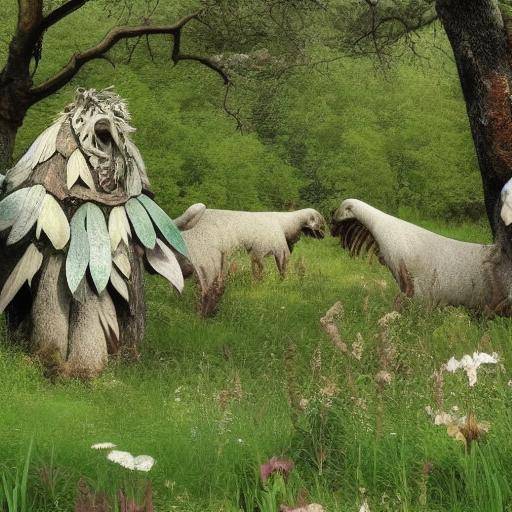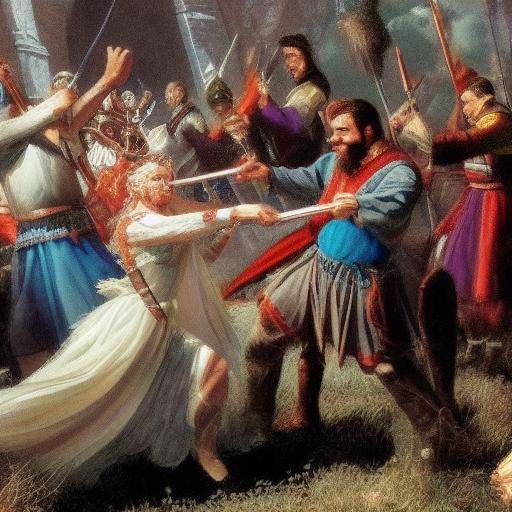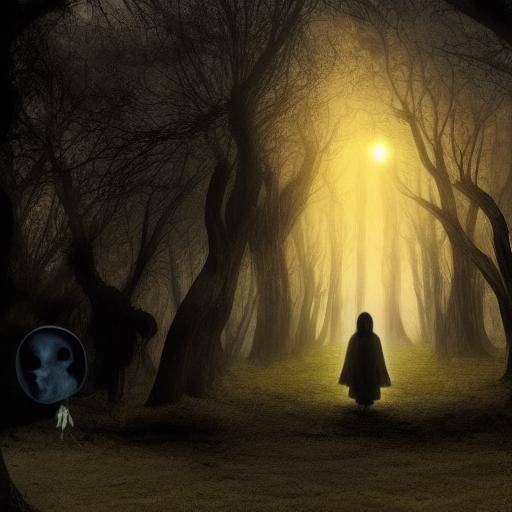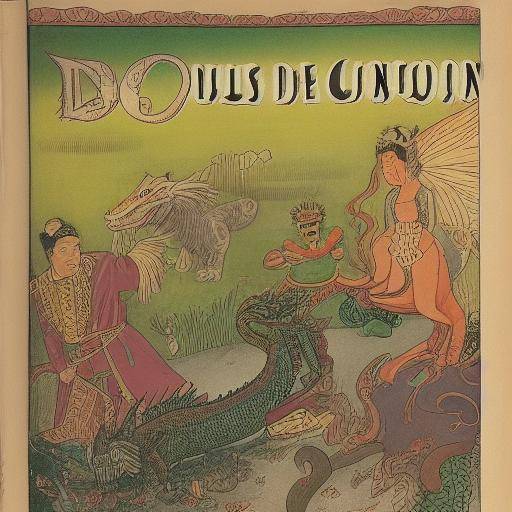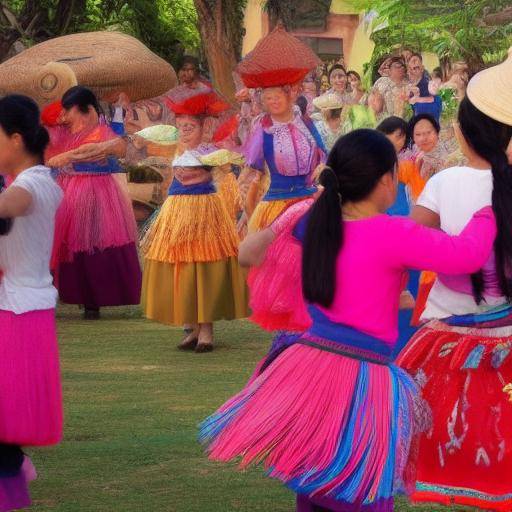
Asian folklore is a vast and diverse treasure of myths, legends and traditions that have endured over the centuries. In particular, the myths of creation in Asian folklore offer us fascinating perspectives on the origin of the universe, earth, and humanity. In this article, we will explore the rich tapestry of Asian mythologies, unraveling the most iconic myths of creation, its evolution over time, and its cultural relevance to this day. Join us on this journey through the depths of Asian imagination and discover the secrets and wonders that lie buried in their myths of creation.
History and Background
Asian folklore has its roots in ancient civilizations dating back thousands of years. From Chinese dynasties to feudal Japan, from the kingdoms of India to the islands of Southeast Asia, each region has forged its own repertoire of myths and legends. These accounts not only provide entertainment, but also offer a window to the beliefs, values and worldview of Asian cultures throughout history. Over the centuries, these stories have been transmitted from generation to generation, enriching with each narrative.
Asian mythological beliefs have evolved through cultural contacts, trade and migratory movements, thus creating a syncretism of cultures and traditions. The myths of creation in particular have been shaped by the influences of Buddhism, confucianism, taoism, Hinduism, among other philosophical and religious currents. This amalgam of influences has enriched the myths of creation, giving them a depth and complexity that reflects the cultural wealth of the Asian continent.
Deep analysis
The study of the myths of creation in Asian folklore gives us a deeper understanding of the fundamental values of Asian societies. These accounts reflect the relationship between humanity and the cosmos, nature and divinity, and the interconnection of all creation. Asian myths of creation often present us to mythological beings, such as dragons, gods, and spirits, whose actions and deeds shaped the world as we know it.
Fertility, cosmic order, duality of opposing forces, and the cycle of life and death are recurrent themes in Asian creation myths. These accounts not only serve as entertainment, but also serve as a hub of moral teaching, transmitting lessons on the importance of balance in nature, respect for ancestors, and harmony between humans and the natural world.
Comprehensive review
The myths of creation in Asian folklore continue to exert a profound influence on contemporary culture. In Asia's art, literature, cinema and music, the motives and themes present in the myths of creation continue to resonate in unexpected and meaningful ways. In addition, in some regions, the myths of creation have been preserved in ritual forms and festivities that keep ancestral traditions alive.
The immortality of these myths lies in its ability to adapt over time. In a constantly changing world, the myths of creation remind us that the bonds between humanity and the cosmos remain a source of meaning, inspiration and hope for present and future generations.
Comparative analysis
Through a comparative analysis, we can appreciate the differences and similarities between the myths of the creation of several Asian cultures. From the Pangu myth in Chinese mythology, to the history of Izanami and Izanagi in Japanese mythology, each story offers a unique view on the creation of the world and humanity. While some myths emphasize divine intervention, others highlight the role of primordial entities or creation through natural processes. This mosaic of myths allows us to appreciate the diversity and complexity of mythical thinking in Asia.
Practical Tips and Accessible Recommendations
If you want to immerse yourself in the fascinating world of creation myths in Asian folklore, we recommend reading mythological anthologies that collect the stories of different Asian cultures. It also explores museums and exhibitions that present artifacts and representations related to creation myths. Also, participating in traditional festivals and rituals will give you a closer understanding of how these stories continue to live in contemporary culture.
Industry Perspectives and Expert Reviews
Academics and experts in Asian mythology continue to unravel the meaning and relevance of creation myths in the current context. His research deepens the influence of myths on society, art, religion and psychology. These perspectives allow us to appreciate how the myths of creation remain relevant in a modern world, serving as a source of inspiration and reflection.
Case Studies and Real Life Applications
In contemporary popular culture, Asian creation myths continue to inspire the creation of literary works, films, video games and other forms of artistic expression. The impact of these myths can be seen in the creative imagination that continues to arouse in modern society.
Future Trends and Predictions
As globalization and cultural exchange intensify, the myths of creation in Asian folklore are gaining global relevance beyond the borders of Asia. Appreciation for the wealth and depth of Asian myths is on the rise, and they are likely to continue to influence creativity and spirituality in the future.
Conclusion
The myths of creation in Asian folklore are an invaluable cultural legacy that deserves to be explored and appreciated in all its magnificence. From the ancient roots of mythology to its influence on contemporary culture, these stories offer unique visions of creation and humanity. By understanding and assessing these myths, we can enrich our understanding of the world and appreciate the diversity of perspectives that enrich the human experience.
Exploring the myths of creation in Asian folklore is an exciting journey that invites us to reflect on our own existence and the place we occupy in the cosmos. As these stories continue to resonate over the centuries, they remind us that human imagination remains capable of generating wonders and mysteries that feed our understanding of the world we live in.
Frequently asked questions
What are some prominent myths of creation in Asian mythology?
Asian mythology has a diversity of creation myths, such as Pangu's myth in Chinese culture, the myth of Izanami and Izanagi in Japan, and the myth of Vedic cosmogony in India, among others. Each brings a unique vision about the origin of the universe and humanity.
How have Asian creation myths influenced contemporary culture and art?
Asian myths of creation continue to inspire artistic creation, literature, cinema, and other cultural manifestations around the world. His influence is reflected in the creative imagination and exploration of universal themes.
What is the current relevance of the myths of creation in Asian folklore?
Asian creation myths remain an important source of inspiration, reflection and connection to Asian cultural roots. These accounts provide unique perspectives on creation, human coexistence and interconnection with the cosmos, thus maintaining its relevance in today's society.
What are some recommendations for those interested in exploring Asian creation myths?
To get into Asian creation myths, we recommend reading mythological anthologies, visiting museums that exhibit art and related relics, and participating in traditional festivals and rituals. These experiences offer a deeper understanding of Asia's cultural wealth.
How can Asian creation myths enrich our understanding of the world and of ourselves?
Asian creation myths offer a holistic perspective on human existence, the relationship with nature and the meaning of life. By exploring these accounts, we can enrich our understanding of the world and our own human condition.
What is the importance of preserving and promoting myths of creation in Asian folklore?
The preservation and promotion of myths of creation in Asian folklore are fundamental to safeguarding the cultural wealth of Asian societies and to foster intercultural understanding at the global level. These accounts are a manifestation of human diversity that deserves to be appreciated and preserved.
What are some recurring themes in Asian creation myths?
Topics such as fertility, cosmic order, duality of opposing forces, and the cycle of life and death are recurrent in Asian myths of creation. These themes reflect fundamental concepts that have been valued and transmitted over generations.
What is the impact of creation myths on Asian folklore in contemporary society?
The myths of creation in Asian folklore continue to impact contemporary society through its influence on culture, art and spirituality. Its presence nourishes creative imagination and strengthens ties with Asian cultural roots.
For millennia, the myths of creation in Asian folklore have been guardians of the cultural and spiritual heritage of the continent's societies. These historical narratives have woven a network of meaning, inspiration and wisdom that transcends time and space. In exploring these myths of creation, we embark on a journey to understand not only the origins of the world, but also the very nature of human existence.
This exploration invites us to contemplate the interconnection between humanity and the cosmos, to appreciate the diversity of perspectives on creation, and to recognize the lasting value of Asian cultural traditions. Ultimately, the myths of creation in Asian folklore remind us that the search for meaning and transcendence is a universal longing that has endured over the centuries, and that it continues to resonate in the lives and aspirations of people around the world.

